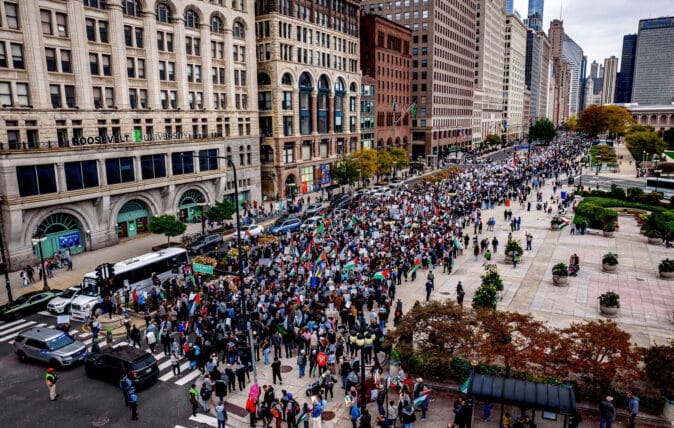Keeping Your Employees Safe at the 2024 Olympic Games

By Chuck Randolph and Fred Burton
As the world eagerly anticipates the 2024 Paris Olympics, the event’s grandeur remains a magnet for threats. Like its predecessors, the 33rd Summer Olympics is a target. French media has reported, in the lead-up to the event, that French authorities are on heightened alert due to terror plots thwarted.
Historically, the Olympic Games have been targeted by threat actors, including the 1972 Munich massacre by the Black September Organization — which was the first terror attack broadcast live around the world. And the improvised explosive device detonated by Eric Rudolph in 1996 at Centennial Park in Atlanta, an event where Ontic’s own Fred Burton was running protective intelligence operations.
In today’s landscape, the threats have evolved, encompassing terrorism, protests, cyber-attacks, and even the disruptive potential of drones. Recent examples include the controversial French election, ongoing conflicts in Gaza and Ukraine, and an elevated tempo of climate change and pro-Palestine demonstrations. Against this backdrop, corporate security teams must deploy sophisticated technology and unprecedented coordination efforts to protect employees and executives attending the Games and safeguard brand reputation.
On a positive note, the eyes of the world are on the Games, so every nation-state with athletes attending has a vested interest in ensuring that their athletes and VIPs are safe—helping create an overall safer environment for non-athletes or non-government officials in attendance. However, as a corporate security leader charged with protecting your own VIPs at the Games, it’s important to understand the risks and establish protocols for safe travel, clear communication in the event of an incident, and more.
Security Challenges for Corporations Attending or Sponsoring Olympic Events
The challenge for corporate security teams attending or multinational companies sponsoring events at the Olympics is managing an overwhelming number of issues simultaneously. It’s essential to ensure your strategy is based on operational planning, situational awareness, coordination, and communications.
Logistics and operational planning
- Routes, hotels, egress, and rapid evacuation (logistics due to crowds)
- Crowded fixed base operators (FBOs) and air space for private air travel
Situational awareness and incident management
- Situational awareness for incidents and road closures
- Mass notifications and tracking of personnel and executives
Security threats and risk mitigation
- Soft-target locations outside of the protective bubble (e.g., Olympic Village)
- Nation-state VIPs “dragging” threats to venues
- Hostile intelligence agencies potentially disrupting the games
Coordination and communication
- Liaison with the State Department’s OSAC and the U.S. Embassy in Paris for threat notifications
- Managing protest activity (organized and spontaneous)
Force Multiplying the GSOC
A Global Security Operations Center (GSOC) is a critical component in special event management, acting as the central hub for alerts, travel, private air coordination, notifications, executive tracking, and more. Corporate security command centers can also provide value-added support for other business lines engaged in Olympic events, such as cyber teams, sponsorship, kiosks, special events, marketing, and advertising. GSOCs can also serve as comprehensive employee tracking centers, ensuring stakeholders have a centralized place for planning, coordination, and issue management.
As a corporate security leader, you can ensure your requirements align with this strategy by focusing your GSOCs on enabling safety and decision-making. Some critical items for using the center as your focal point:
01
Pre-planning and logistics
A crucial first step is to think through the details of travel logistics and prepare for worst-case scenarios. Establish robust logistics plans for routes, hotels, egress, and rapid evacuation in the event of a security incident like large crowds or protests. You’ll want to have backup transportation plans in place and consider secondary rendezvous points for executive transport. If you’re coordinating private air travel, form a plan for handling crowded FBOs and air space.
02
Communication protocols
Establishing lines of communication with your team, law enforcement officials, and peer organizations is essential before the event. Defining communication protocols upfront helps you (and the VIPs you’re protecting) make smart decisions in stressful situations.
First, define communication protocols for rapid notifications to your staff and VIPs in case of a security incident or threat, such as weather, road closures, or protests. Your protocols should factor in communication hierarchies and modes of communication. Consider using satellite communications (Iridium) in case of cellular phone overload.
Next, liaise with the U.S. State Department’s OSAC for real-time threat notifications and ensure all your traveling staff have registered with the U.S. State Department’s Smart Traveler Enrollment (STEP) Program. Anyone enrolled in STEP will receive alerts from the Embassy about safety conditions at the destination. It will also make contacting you in an emergency easier for the U.S. Embassy.
Finally, establish contact protocols with other companies and organizations operating in the same geographical and business line as yours, creating a robust information network.
03
Incident management and situational awareness
Throughout the event (and during travel times), it’s essential to maintain high situational awareness for incidents like road closures, crime, or weather. Leverage technology that can help you track personnel and executives continuously. Additionally, contingency plans should be available for emergency evacuations, including medical kits, prescription meds, and smoke hoods in case of fire or tear gas.
04
Security threats and risk mitigation
Lastly, consider additional threats specific to large-scale international events like the Olympic Games, such as those listed below. Mitigating your risk requires intelligence gathering ahead of the Games and ongoing monitoring during the event to ensure near real-time understanding of how these threats might impact your own VIPs.
- Soft-target concerns (high-threat areas) outside the locked-down, protective bubble, such as the Olympic Village
- The presence of nation-state VIPs who may attract additional persons of interest or terrorism threat actors
- Potential disruptions by hostile threat actors seeking to steal the global stage
- Protests and demonstrations
By focusing on these areas, corporate security staff, executive protection teams, and GSOCs can proactively address the security issues that will inevitably surface at the 2024 Olympic Games. At a minimum, thinking through and planning your response to probable scenarios will assist tremendously in keeping your team safe should security incidents occur.








